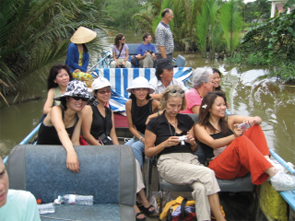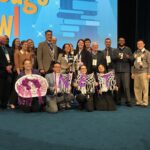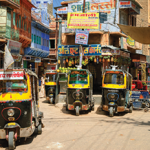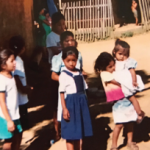The same question from Vietnamese doctors kept surfacing: “Will you come back next year?” It hit me like cold water, as meaning, “Can we trust you? Will you truly bring a meaningful program to propel us to international medical standards? Or is this another one of these hundreds of short visits by medical doctors from all over the world who had a curiosity about our country, but who left behind a few pieces of equipment without training, maintenance, and sustenance?”

My mind focused on the complexity, meaning, and implications of that simple question. It meant more than understanding, it meant coming to see the way people live, think, and behave in this land. It meant to feel their hearts and minds, to live through them, and to know the history, the generations of men and women who brought forth today’s Vietnamese people—the fisherman who looks at a sunset in the Mekong Delta and says: “I love these waters”; the street vendor, under the weight of her bamboo baskets, who walks to the market in Hue and stops at the Old Citadel and sheds a tear.
I spent several days floating on the waters of Halong bay, meandering among majestic ghostly limestone mountains rising straight out of the seas, thinking of these relationships. Life is not about acquiring more but about the depth of relationships. The Vietnamese doctors are willing to trust and to establish long-term relationships, but are we? Standing still through thousands of years of Vietnamese history, the Halong Bay mountains were witnesses to my thoughts.
My experiences during that first year could be summarized as a legacy of touching the unknown. From hospitals in Saigon to Hanoi and to Thanh-Hoa, I had a permeating heavy feeling of the well-meaning mission team’s unawareness of their imposition upon their hosts. As we labeled ourselves “going on medical mission,” we seem to think that we possess superior assets in terms of knowledge, technical skills, and diagnostic and managerial rationale. Many medical professionals would arm themselves with their western training, books, literature, and experiences, and would think of imparting their knowledge, within a two-week period, as proof of their invaluable gift. Yet, why were they met with resistance, distance, and polite disappearance from the Vietnamese counterparts?
Toward the end of our two-week tour in Vietnam, I let out a big sigh of relief at the thought of going home to America. For me, the beauty of a white winter in silence and solitude was a welcome respite for reflection and to let formed thoughts and sensations come to mind. The leader of PV did not waste any time; three months later we were discussing the next trip in November 2005. I made the commitment to go back to Vietnam, this time leading a training team of twenty physicians, nurses, engineers, and volunteers to Can-Tho, Hanoi, and Hai-Phong.


